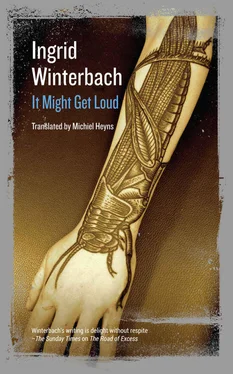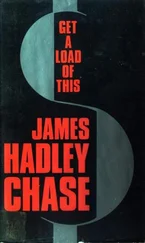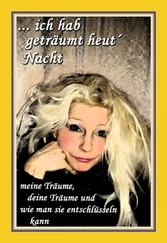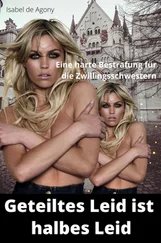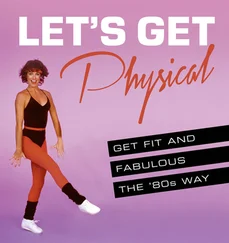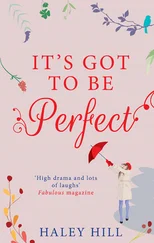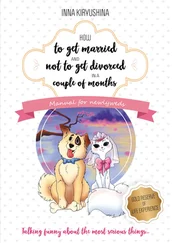‘May I read the poems?’ she asks.
‘No,’ he says, ‘as I said, the poems are under embargo.’
‘And you may not make an exception for me?’
‘No,’ he says. ‘I may not.’
‘Tobie,’ says Maria, ‘I am Sofie’s only sister. I’m her nearest relation. Don’t you think you could make an exception for me and allow me to see the poems?’
‘No,’ he says. ‘If I make an exception for one, I must make it for others as well. You may, though, with special permission, read the poems under supervision.’
‘Permission from whom?’
‘Permission from me.’
‘That’s exceedingly big-hearted of you,’ she says. (She can’t believe what she’s hearing. The mean-spirited fool!)
‘And besides,’ he adds, ‘I’m actually making a concession for you, because I think under the circumstances Sofie would in any case not have approved of your having access to the poems.’
‘You are henceforth Sofie’s official mouthpiece on earth?’
‘Yes,’ he says, ‘as the executor of her estate that is more or less what I am.’
‘She would never have allowed you to speak on her behalf while she was alive,’ says Maria. ‘For that her own voice was too powerful.’ He colours slightly.
‘In actual fact,’ he says, ‘Sofie’s wish was that her work should be burnt. If she should die. I moderated it by placing it under embargo.’
‘The embargo was your idea?’
‘Yes. As I’ve said, she actually wanted all her work to be burnt.’
‘She officially had it stipulated like that in her will? Black on white? Signed by a commissioner of oaths, an attorney, whatever?’
He hesitates just a moment too long.
‘It’s not stipulated like that in her will?’
‘It was always her wish,’ he says.
‘You’re not answering my question,’ says Maria.
He suddenly bridles, takes a deep breath, and says: ‘I do not have to discuss Sofie’s will or her wishes with you, Maria.’
She must adopt a different tactic. She is furious and vindictive in equal measure.
‘What do you know about Sofie’s interest in the Ten Gates?’ she asks.
She notes with satisfaction that for a moment he has absolutely no idea what she’s referring to. ‘Well,’ he says, ‘Sofie was interested in many things.’
‘Yes, she was,’ says Maria, ‘and this interest is difficult to reconcile with the others, as far as I can judge.’
‘Yes?’ he asks. He is curious, but he doesn’t want to show it. He is of course aghast at the intimation that there was some aspect of Sofie’s life of which he was not aware, and over which he has no control after her death. He wants to fish for information, but he is too proud.
‘Yes,’ she says. She would relish rubbing his snout in the mud.
‘Are you referring to’ — he makes a half-dismissive hand gesture — ‘what she wrote in the little book that she … that I gave you last time?’
‘Yes, the book she left me. You know of course that she interested herself in annotating and explicating the so-called Ten Gates,’ she says. ‘She wrote about it extensively, it must have been very important to her.’
‘Right,’ he says. His gaze wanders. He’s also getting older, she sees. His hair is thinning, he no longer has the same boyish effulgence. He looks, to her great satisfaction, deflated. The wind knocked out of his sails for the time being.
‘It would seem, in fact, as if she underwent a complete change of heart.’ Rub it in.
‘Right,’ he says, his glance lowered, directed at the scrubbed table surface in front of him.
She tries a different tack. ‘How were things with Sofie before her death, Tobie?’ she asks: suddenly, outright. ‘You know for yourself that we no longer had contact.’ (Of course he knows it; he may even have been partly responsible for it.)
He looks up. He looks four-square into her eyes. Actually for a few moments something pleading in his regard. But she sees how quickly this pleading gaze veils over, rebarbative. He is still looking squarely at her, but now with greater depth of feeling. ‘She was ready to go,’ he says.
‘What do you mean?!’ Maria asks, staggered.
‘She had made peace with the knowledge that she would never experience happiness in this world,’ he says. Of all the banal and clichéd bullshit! That she could have thought for a moment that this man — hypocrite — would ever inform her of her sister’s emotional state before her death.
‘How do you know that?’ she asks.
‘That’s what she said,’ he says, and drops his gaze chastely.
‘Tobie,’ says Maria, ‘did you know that Sofie was going to kill herself?’ (As if he would answer the question honestly.)
Again he lowers his eyes. The pious, sensitive tremor around the mouth. The sincere, heartfelt poet’s gaze when he looks at her again. ‘To the very last she took me into her confidence.’
‘Now I suppose you’re going to tell me you were aware of her most intimate thoughts,’ she says caustically. (She realises this is no way to achieve anything.)
‘We had no secrets from each other,’ he says. (What a lie , she wants to cry out, I don’t believe a word of it!)
‘So you knew?’ she asks.
He changes colour slightly. ‘Sofie lost the battle,’ he says.
‘You’re not answering my question,’ she says.
He looks at her. The heartfelt gaze yields to something more inimical.
‘There is no more to be said,’ he said. ‘Sofie made a choice, and we must respect it.’ (Granted. But what gave rise to Sofie’s making the choice? Maria had after all hoped the man would be able to tell her something.)
So they part — stalemate reached.
*
That afternoon Maria Volschenk lunches with the female director of one of the companies she has to audit. A company manufacturing packaging materials — not very big, but extremely successful: a profitable financial empire built on packaging materials — sheets of corrugated cardboard and cardboard boxes.
The woman, Christina Groenewald, is a surprise — at least as far as appearance is concerned. Maria guesses her to be about her own age — early to mid fifties — but it’s hard to tell, because with a blonde (butter-blonde) ponytail, very prominent pout (Botox?) and an almightily impressive set of eyelashes (implants? extensions?) she looks deceptively youthful at a distance. If the American has a Daisy Duck upper lip (and Maria becomes progressively doubtful if that is an appropriate description), then this woman is Daisy Duck incarnate. The duck-bill pout and the flirtatious sideways glance. Except where Daisy Duck has three eyelashes, this woman has a dense fringe, and as far as length is concerned, they don’t fall a centimetre short of Daisy’s. (What is the cosmos trying to tell her? Maria thinks. What’s her case with Daisy Duck of late — is there something in the animal kingdom she’s supposed to take cognisance of?)
Furthermore the director wears Jimmy Choo shoes (and why shouldn’t she abundantly avail herself of the financial benefits of her position?), a pair of close-fitting jeans and an expensive sweater with an inappropriate frilly bow; her conspicuously firm breasts seem to be bolstered either by silicone implants or by a bra of the type Madonna wears onstage. Iron Maiden.
Throughout the meal Christina chatters animatedly, she expounds on the best gym in town, the best eating places in the vicinity. She eats fast and a mite messily (gluttonously) and talks with her mouth full. Lots of money clearly does not guarantee good table manners, but she is sharp and well-informed, she has a wide range of interests, a robust self-regard, and an ability to pick and savour without scruple the fruits of her success (the Jimmy Choo shoes, the Botox, the designer clothes).
Читать дальше
